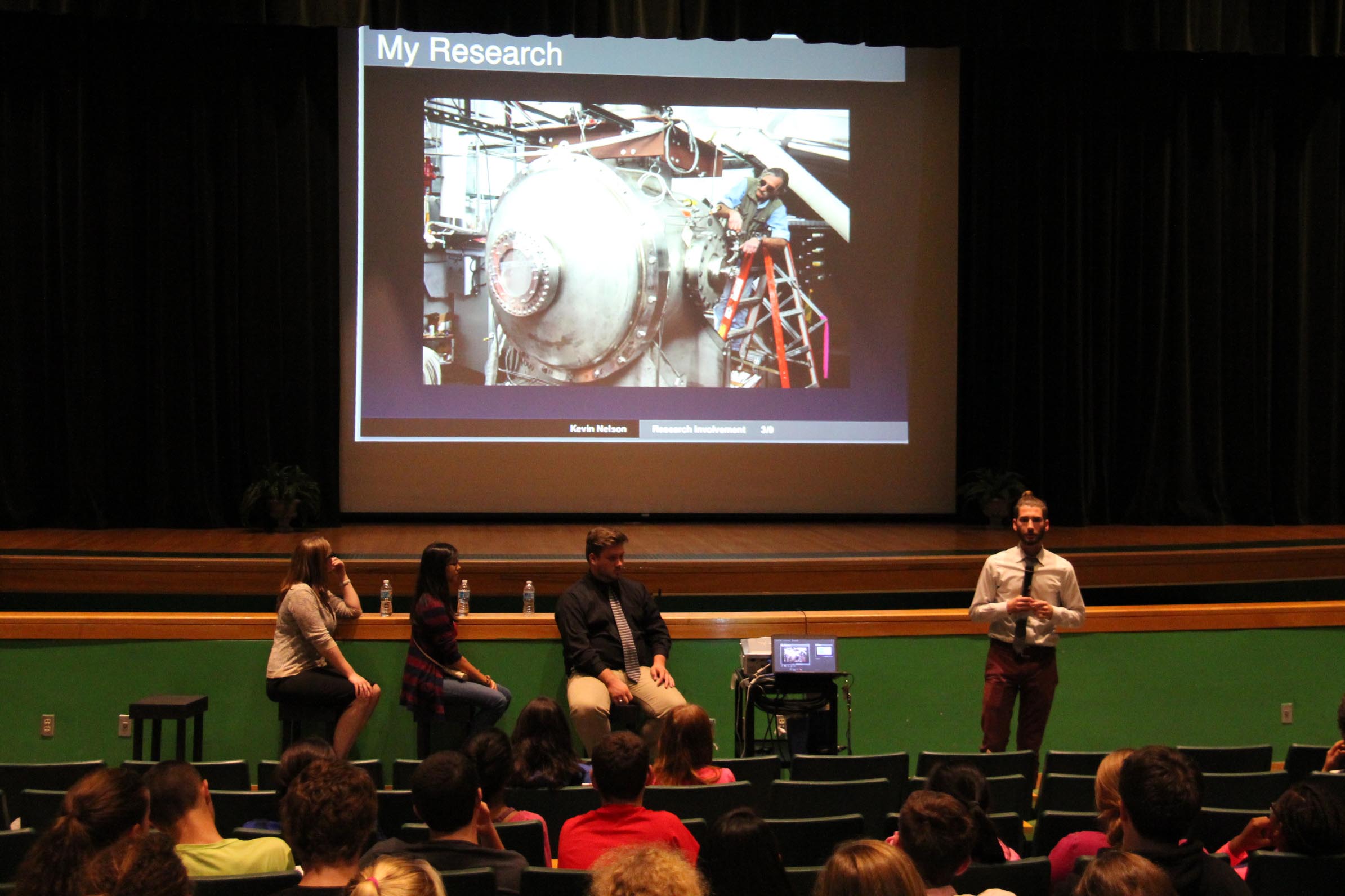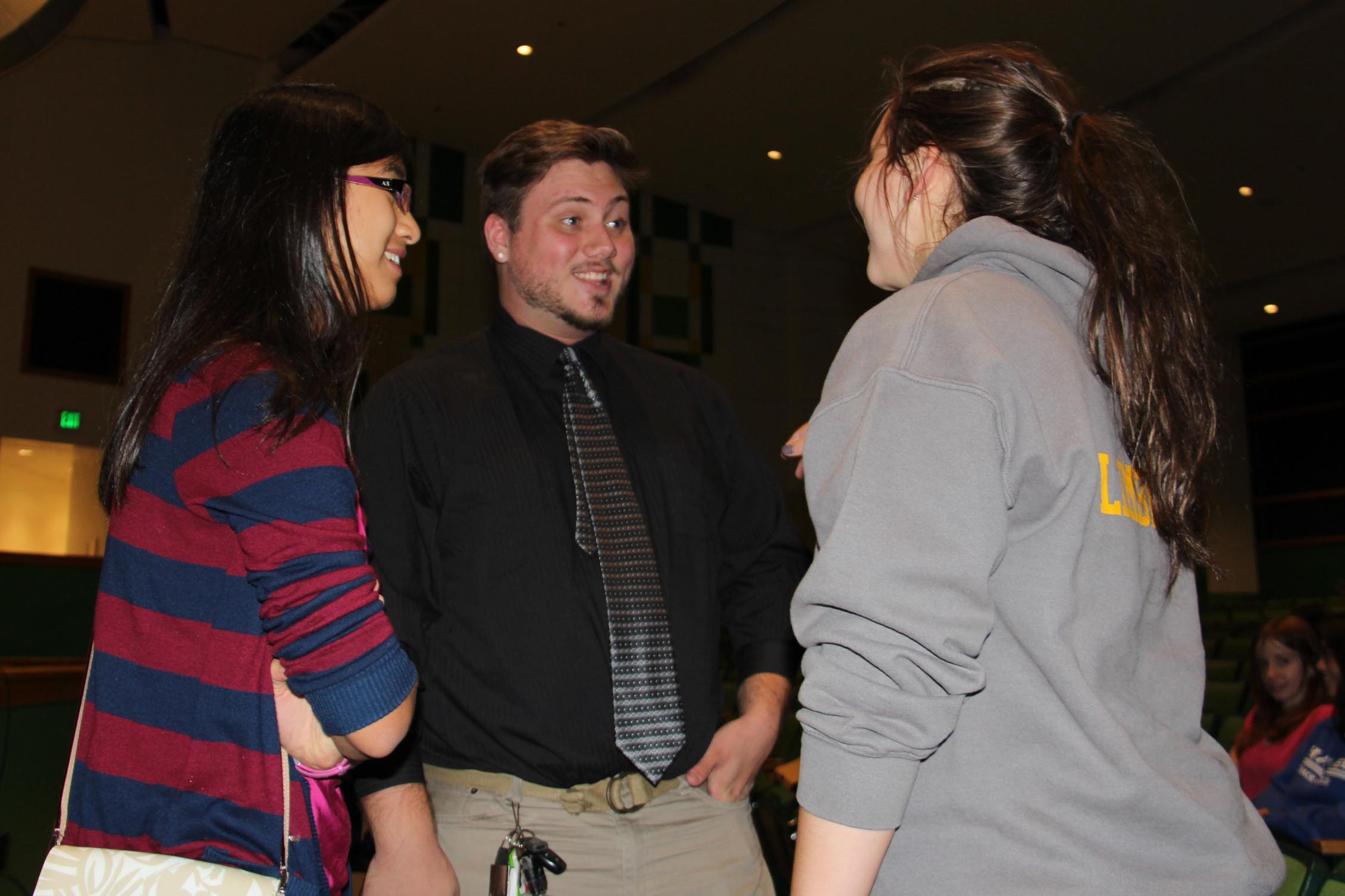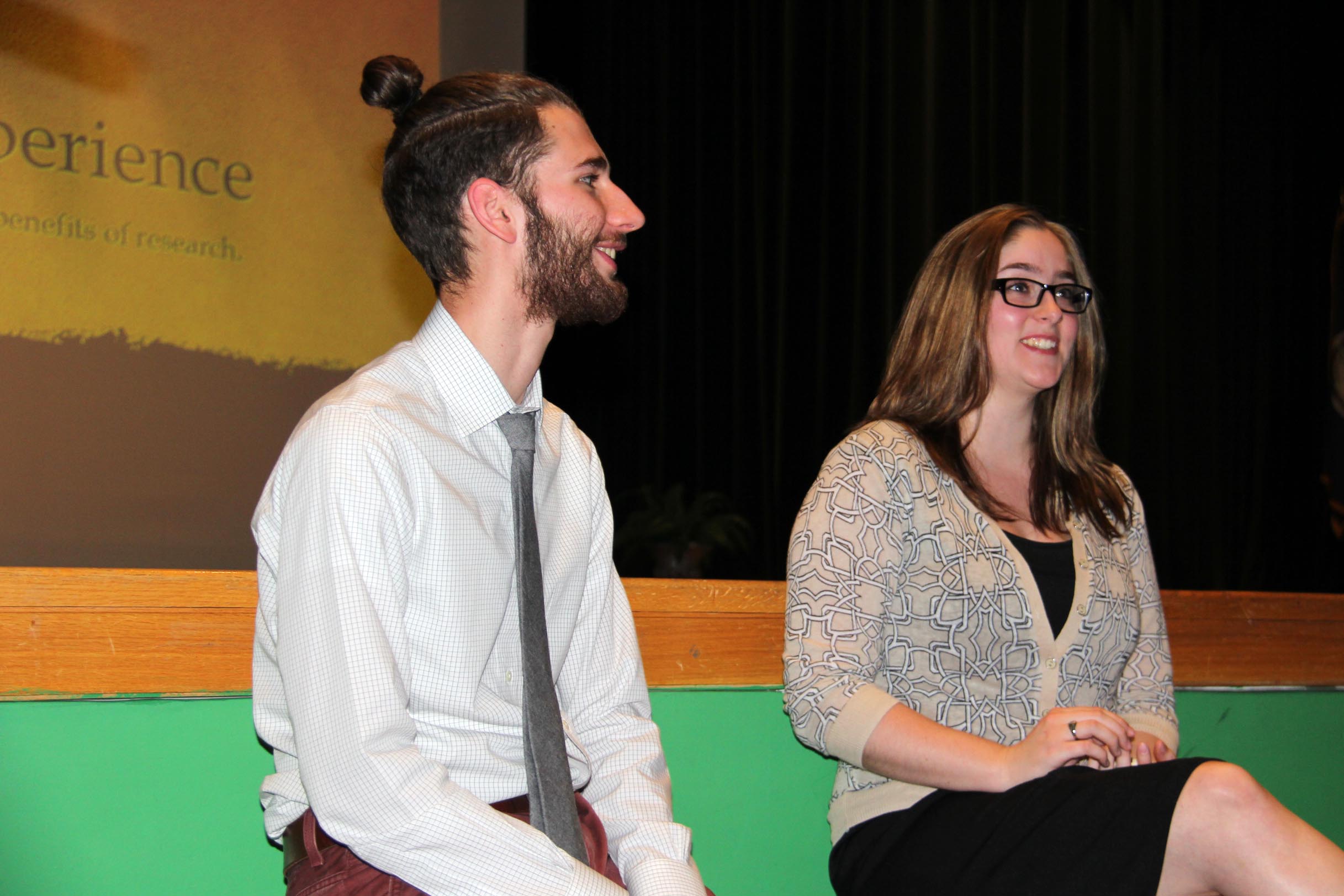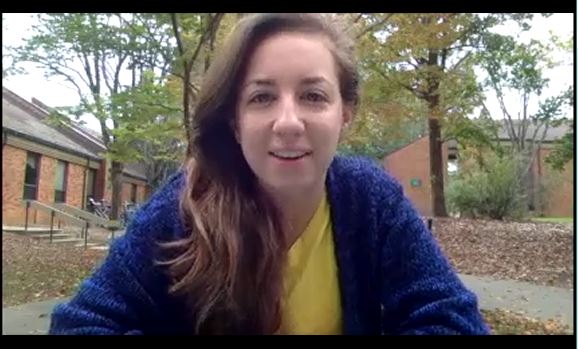“I just absolutely love it,” says Kevin Nelson of physics.
In fact, the 2014 Ocean Lakes High School Math and Science Academy (MSA) graduate wants to make a career of it, researching and teaching physics as a university professor. Following in the footsteps of Einstein at Princeton would be a dream.
Further igniting Nelson’s passion is the fact that the 2015 Nobel Prize in Physics was awarded earlier this month to two researchers for their discoveries related to neutrinos, which are also the focus of Nelson’s work with a research team at the College of William and Mary – where he is a sophomore.
“This research will help us understand the universe,” Nelson told an audience of MSA ninth- and tenth-grade students and staff.

An added bonus, according to Nelson, is that he earned money this past summer conducting research in Williamsburg.
“I can do this thing that I love called ‘physics’ and get paid for it,” he said in disbelief, encouraging the high school students to consider a similar summer job while in college.
Nelson was one of seven MSA alumni invited to discuss their college research experiences during the academy’s Evening Lecture Series Oct. 13. It was the first session of the 2015-16 school year, and MSA teacher and lecture series coordinator Babette Zado intentionally selected the topic to take the fear out of research for younger students.
“Tonight is really aimed at the freshman and sophomores to try to help them not feel so afraid of research,” Zado explained. “Because it seems very daunting, but it doesn’t have to be.”

Both in person and via recorded video messages, alumni reflected on their initial intimidation with research. However, each one noted that their experiences in high school provided them with the skills and confidence to pursue some great opportunities in college.
“I entered the University of Virginia with a passion for engineering that I honed in on while at Ocean Lakes,” Alex Pawlowski told students in a videotaped message.
Pawlowski, a 2010 MSA graduate, explained that “research can be a way to figure out what you want to get out of the college experience,” and he described how he further developed his own leadership and technical skills through various opportunities.
Today, Pawlowski has a full-tuition fellowship as a doctoral student at the University of Tennessee to study 3-D printing and vehicle transportation. Not only is he studying it, he is leading an effort on the subject for Oak Ridge National Laboratory, collaborating with three different labs to explore and research it.
“Every experience at Ocean Lakes helped prepare me to take on the next challenge,” said Pawolski, citing his involvement with the academy, cross country team, track team and leadership workshop.
Pawlowski encouraged the ninth- and tenth-grade students in the audience to look into research opportunities in college and further explore their high school studies.
“The worse thing that can happen,” Pawlowski added, “is that you have an experience that tells you what you don’t want to do. That’s ok. That’s a learning experience, too. Keep refining what you want to do.”
Maria Kapral, a 2012 MSA graduate and senior at the College of William and Mary, knows she wants to be a physical therapist but only started helping a research team this summer. She explained that working through the process of her own research project in high school “made me more comfortable saying to a professor, ‘I know you have all this going on, but do you mind me just coming in and helping you. I don’t need to have my own project, just to contribute in any way I can.’”

Kapral said the team is “closing in on the end of its research” and soon will be submitting results for publication. In her brief time with the team, she has worked with laser microscopes, which she described as “fun and fantastic,” and spent 10 hours at a time completing a set of microfiber analysis images. In addition to the hands-on experience in a science lab, Kapral said she has benefited from the “collaborative effort and problem-solving experience” on the team.
“Personal accountability, patience and perseverance,” are what 2014 MSA graduate Charles Holmes told the audience he learned from his senior mentorship and research in the academy. He also credited his high school experiences with giving him the confidence to approach a professor and volunteer his time in a lab at James Madison University where he is a sophomore.
“There are a lot of good things happening, but I think a lot of students are afraid,” reiterated Zado. “This is why you do research here, while it’s not scary. And you go off to college and you don’t hesitate because you feel comfortable walking up to a professor and saying, ‘I’ve done this, and I want to do this for you.’”
Anna Phan, who graduated from Ocean Lakes in June and started her studies at Old Dominion University this fall, is excited to take advantage of research opportunities in higher education like her fellow MSA alumni have. She has plans to study biology and biochemistry but recognizes the options are limitless.
“Research gives us a big opportunity to explore our interests and our passions and to see if it’s really what we want to do,” she said, “and if it doesn’t work out, we can always explore another direction.”
Exploration is an aspect of the academy Lauren Dybel, a 2013 MSA graduate, said she values. She is studying neuropsychology and neuroscience at the College of William and Mary with plans to pursue a senior honors thesis.

“I think the greatest thing that the Math and Science Academy can give students and has given students for a really long time now, is a better understanding of what they can pursue and the broader perspective of what science can look like in the real world,” Dybel said.
Zado explained that Dybel’s takeaway is one of the goals of the MSA lecture series.
“I really feel strongly that the students need exposure to the different fields and the occupations,” Zado said.
For that reason, Zado has invited the following professionals to present at the remaining lecture series sessions for the year:
- Nov. 9: Dr. Robert Malkin, Duke University professor, will discuss Global Public Service Academies
- Dec. 22: Matthew Schiffler, senior research scientist at Eli Lilly and Company, will discuss organic chemistry and pharmaceuticals
- Feb. 9: Paul Battaglia AIA, architectural department head at Clark Nexsen, with a topic to be announced
- March 8: Dr. Eric Green, director of the National Human Genome Research Institute at the National Institutes of Health. will discuss genomics and precision medicine
Zado said some of the scheduled speakers have served as mentors to MSA seniors in the past and plan to continue to do so in the future.
Also willing to help current academy students are the alumni who served on Zado’s lecture series student panel and have walked in the students’ shoes before.
“If any of you end up touring William and Mary and would like to talk to someone about research or majors or just having a friend to go to the cheese shop with, let me know,” said Dybel. “I’m always around and always willing to help out a fellow Ocean Lakes student.”
